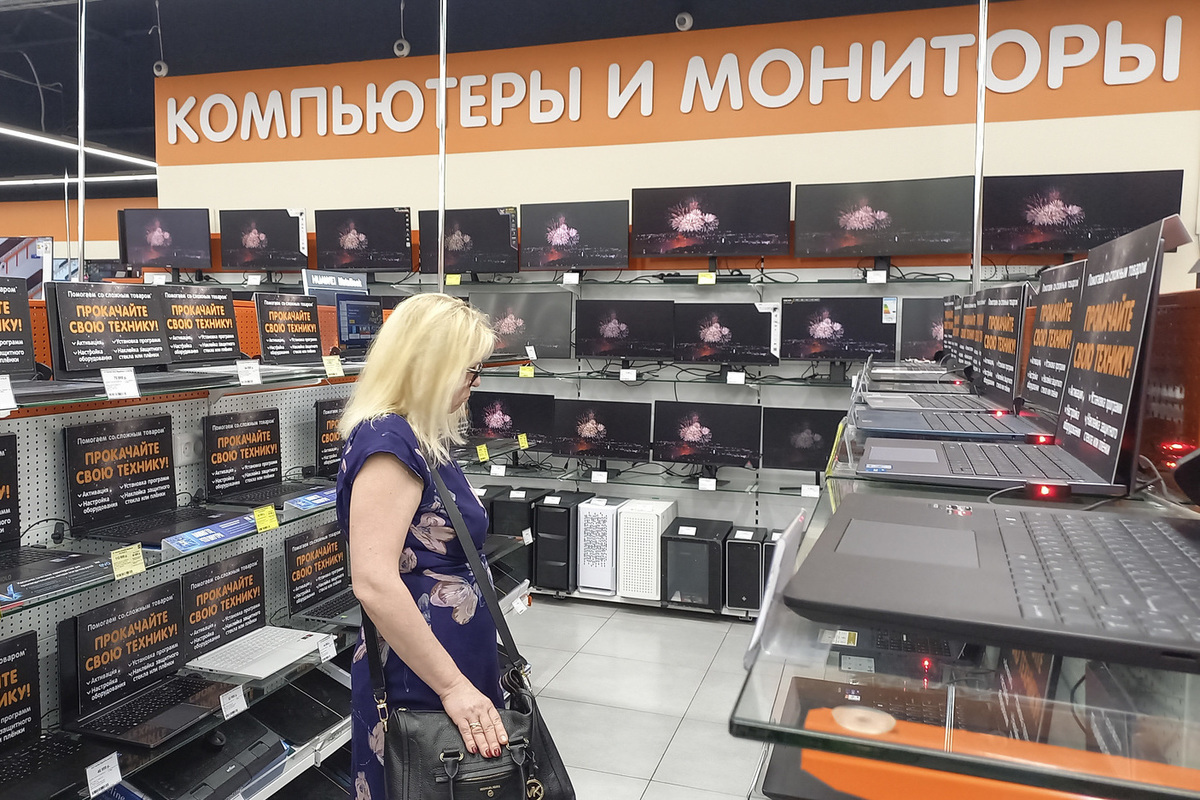Expert Anfinogenov talks about increasing duties on the import of electronics: prices will rise
[ad_1]

“Russian manufacturers will not be able to satisfy consumer demand on their own”
The Ministry of Industry and Trade has proposed increasing customs duties on the import of electronics, but concrete ideas have not yet come to fruition. Russian manufacturers support the idea, but retailers are categorically against it. Sellers insist that there are no prerequisites for this, such as the presence of sufficient domestic production. Independent consumer goods expert Alexander Anfinogenov agrees with this statement. He recalled that the Russian YotaPhone did not work, the flexible tablet never took off, and the Baikal-M processor was no good at all. If the duties are revised, according to the analyst, store shelves will thin out and prices for household appliances will inevitably rise.
– Why do they want to increase half tires?
– The state should lobby the interests of local producers. The current conditions do not allow Russian producers to reach a competitive level. We are on the periphery, where we are missing a lot. But production is a knowledge-intensive, costly, and very complex thing. This requires special equipment and qualified personnel. The measure to increase duties could be very effective if the state symmetrically provided support for producers. This could include low-cost loans, support with raw materials, and staff training. If the authorities lend a helping hand to manufacturers, they will begin to produce mobile phones, computers, and televisions. Only then will the increase in duties produce results when equipment from our brands appears on our market. And using duties to demonstrate the state’s loyalty to local producers is just a populist measure.
– The possibility of increasing duties is being considered primarily for those product categories where domestic production is sufficient to cover the needs of the domestic market. What categories can we talk about?
– There are no such categories in Russia. Our companies won’t even learn how to make drones on their own. There is an acute dependence on spare parts. What else is there to talk about? Previously, the state could say that our country produces Samsung TVs and Indesit washing machines. But it turned out that this was not the case. Factories of these brands were located in Russia. The companies left, taking with them all the technology, all the know-how.
– Why are retailers opposed?
– Because they understand that the shelf will be empty. Curved, oblique supply patterns will appear. Counterfeits will flood into the country. All claims will go to retailers. How can they close these gaps? Here parallel import no longer works. Prices will rise, consumer dissatisfaction will grow, and the average bill will fall.
-How can the implementation of the Ministry of Industry and Trade’s proposal change the market?
-No way. The Russian presidential elections opened a new electoral cycle in the country. Yesterday’s voters, and today’s buyers, will begin to express dissatisfaction in all available ways. This wave of discontent will need to be stopped. Then the authorities will have to roll back the situation. There will be an envelopment of this information, which will then sink into oblivion. The state, taking a competent approach to this issue, must create the prerequisites for the development of local producers to the level of transnational concerns. Once the prerequisites have been created, the import can become more complex.
– Which product groups will be hit first?
– The entire market of household appliances and electronics. Everything will become more expensive: monitors, computers, peripheral devices, mice, wires, etc. For each category, retailers have a target margin. Let’s imagine a distributor or dealer who brought a monitor from the manufacturer for $50. The retailer will sell it for $100. The distributor earned $50 (it was spent on logistics and staff salaries). If the duty increases, the monitor will cost $70. The retailer, in turn, will increase the target margin and the price will rise to $140. Every ruble that is added at the initial stages doubles or even triples on the store shelf. However, the quality of the product does not change. He’s not getting any better. The warranty period remains the same. People’s wages are not getting higher. But the goods are becoming more expensive. We could have met consumer demand ourselves, but YotaPhone didn’t work, the Russian flexible tablet didn’t take off, and the Baikal-M processor is no good.
[ad_2]
Source link






